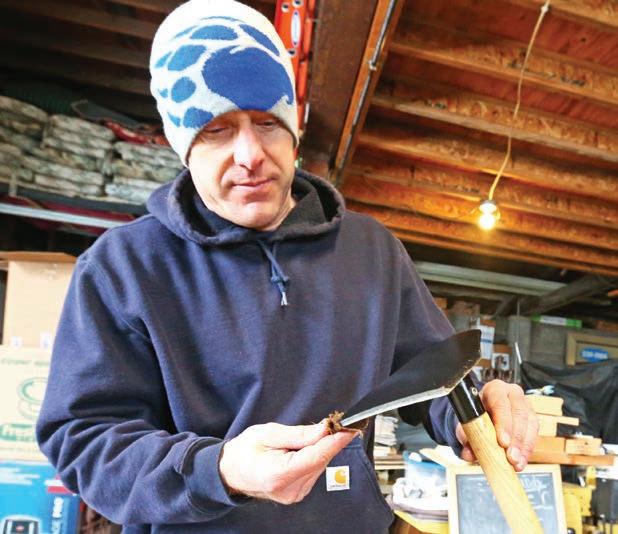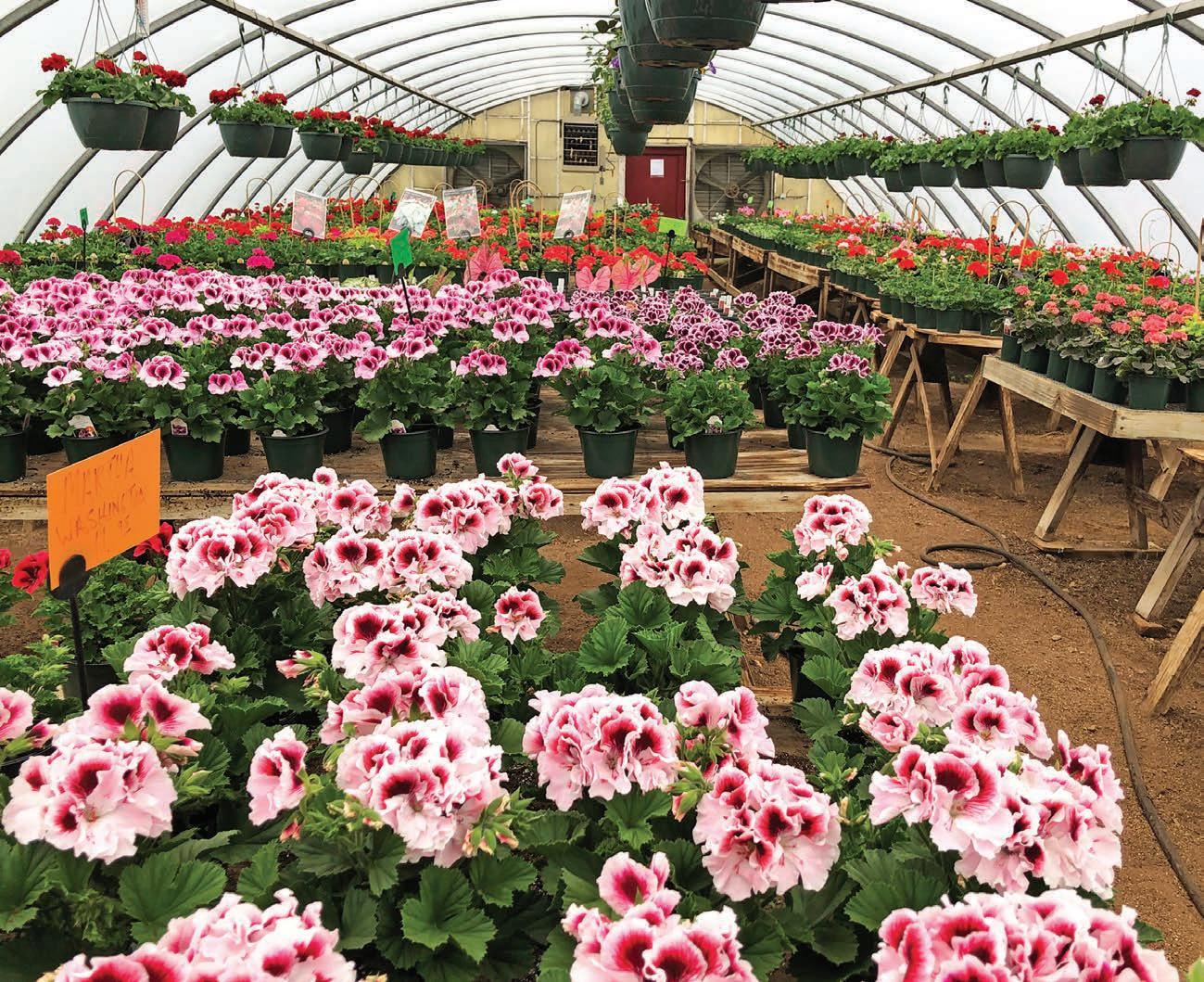
4 minute read
Jumping On The Gardening Bandwagon In 2021?
Read these tips from local gardeners
DON’T FORGET TO TILL NEW SOIL
If you’re going through sod, you’ll probably need to till the area a couple of times, says Lorraine Farley, a member of the Mendota Garden Club. If you’re having someone else till the garden, she suggests cutting your grass as short as you can in the area you want tilled, so there’s less of a chance of the grass re-rooting.
FIGURE OUT WHICH SEASONS TO PLANT THE CROPS YOU WANT
If you’re interested in planting vegetables this spring, some good options are potatoes, onions, and cabbage, as those foods don’t like the heat of the summer, Farley said.
PLAN FOR THE SPACE YOU HAVE
Plants need room to grow and don’t do well when they are crowded out. Plan for the needed space in your garden, so that there’s adequate space for your plants to grow, Farley said.
USE SNOW FOR NEW TREES
Consider putting snow around newly-planted trees and shrubs to provide some extra water if the spring starts out dry, said Farley. But don’t do this for the garden, as it will pack the dirt down and make the ground hard.
JOIN LOCAL GARDEN CLUB GROUPS AND ASK QUESTIONS
This is a great way to learn, Robbin Keenan, a member of both the Utica and Ottawa garden clubs, said. New gardeners can find the answers to almost any question they have by asking more experienced gardeners in the club.
REMEMBER THAT EVERY YEAR IS DIFFERENT
Just because your garden thrived one year doesn’t mean it will the next. Nature is always throwing out curveballs. Keenan remembers one year when none of her tomatoes ripened. She had a surplus of green tomatoes and had to search for recipes so the harvest didn’t go to waste.
Some years are wetter, so you get mildew on things or a mold that kills off a whole family of plants.
REMEMBER TO TROUBLESHOOT
Keenan said if someone has a bad year, they can relocate the plants next year or try to figure out what caused the problem. She never figured out why the tomatoes didn’t ripen, but she knows the same problem happened to others, so the cause may have been the weather.
CUT OFF DEAD BLOOMS
It’s best if you cut off all the dead blooms on flowers, said Margaret Frick, member of the Mendota Garden Club. She said she learned the term “deadhead” from the garden club. When you cut off dead blooms, the flower will continue to bloom again.
LEARN TRICKS FOR EACH PLANT YOU’RE GROWING
For instance, Frick is a fan of peonies and has a whole bed of them. Her grandmother taught her there’s one main bud for a peony, and if you pick off the little buds around it and keep the one bud, it makes a great, big peony.
TAKING CARE OF YOUR TOOLS IS IMPORTANT
Maintaining tools will lead to an easier, better job when gardening, said Steve Lauer, president of the Mendota Garden Club. He wants to maintain his tools, so he cleans them, removes rust, and oils them to prevent them from rusting again.
He does not clean his tools after every use, though.

PHOTO BY SCOTT ANDERSON Steve Lauer uses steel wool on the front part of a garden hoe in his garage.
If interested in gardening this year, you might want to consider getting ready early. Last year, the Seatonville Greenhouses (pictured) in Seatonville sold out of inventory by Memorial Day weekend.
SUBMITTED PHOTO
The general rule of thumb is if you don’t think you’ll use it in a couple of weeks, clean off the tool. If tools sit dirty for a prolonged time, they’ll rust, or the wood handle will rot.
It’s also not good to put tools away wet – make sure to dry them. But don’t leave them in direct sunlight longer than necessary.
Lauer said steel wool, muriatic acid, Coca Cola, vinegar solution, and baking soda all work when it comes to getting the rust off. After removing rust, you’ll want to oil your tools to prevent rust in the future. Linseed oil is good, and vegetable oil will work if that’s what you have handy.
SANITIZING ISN’T JUST FOR HANDS
Even before the COVID-19 pandemic, Lauer learned the importance of sanitizing his tools from a horticulturist. Sanitizing your tools with bleach or other household cleaning products prevents you from spreading bacteria from one plant to another.
CONSIDER NATIVE PLANTS
Native plants help pollinators, according to Vicki Stacy, a member of the Ottawa Garden Club. Stacy is also a University of Illinois Extension master gardener and master naturalist.
Pollinators, like hummingbirds and butterflies, are anything that helps carry pollen from the male part of the flower to the female part of the same or another flower. Stacy said it’s not necessary to have your whole garden or all flowers be native.
“It’s nice to intersperse those things in with your annuals or perennials you’ve had over the years that you really love,” she said.

START OUT SMALL, AND GROW THINGS YOU LIKE TO EAT
Joe Hochstatter, a member of the Mendota Garden Club, offered this tip to new gardeners. It’s best not to put too much effort into things you won’t eat. Being overwhelmed because you planted too much and can’t keep up with your garden is also a way to dampen your love of gardening.


